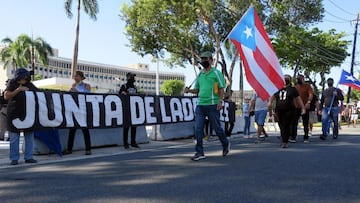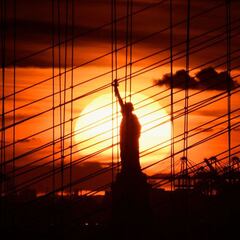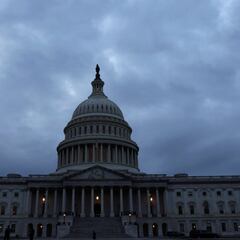Does Puerto Rico get social security benefits?
Despite being a US territory, the Caribbean island is treated as second-class, with its citizens denied the same rights as those in a true state.


The US Supreme Court is hearing arguments relating to how Social Security payments are controlled in Puerto Rico. It sounds academic, why would a place that has been a part of the United States for more than a hundred years have problems with benefits?
In fact, the ruling is massively important, not just relating to those receiving benefits, but with how the US interacts with its "territories", that being areas controlled by the US that are not full states, for their joint future. It is part of a story of 500 years of colonialism, of laws constructed during the United States' worst past, and how a fully just and Democratic future can be the only solution for the concerns between the US and Puerto Rico.
Why is the difference between statehood and territory so significant?
Despite being controlled by the US for more than a century, Puerto Rico has never been granted full statehood. It is classed as a territory, meaning the island is allowed to be governed in a totally different way to the other 50 states in the US.
While people from Puerto Rico are classed as US citizens, they are not allowed to vote in US elections, including for the President. Only Congress has true jurisdiction over territories, something the territories cannot change themselves. They have no vote for senators. Here is what the American constitution says:
"In the territories, Congress has the entire dominion and sovereignty, national and local, and has full legislative power over all subjects upon which a state legislature might act. It may legislate directly with respect to the local affairs of a territory or it may transfer that function to a legislature elected by the citizens thereof, which will then be invested with all legislative power except as limited by the Constitution of the United States and acts of Congress."
This fate is shared by other US possessions, such as Guam and American Samoa. in effect, it means the territories can be treated with nowhere near the care and support of the states in the US. This is where the court discussions surrounding Social Security are so important.
We’re fighting to extend SSI to Puerto Rico & I’m hopeful our bill will soon become law.
— U.S. Rep. Stephanie Murphy (@RepStephMurphy) November 9, 2021
PR voted for statehood in 2020 and statehood is the *only* way for PR’s 3 million U.S. citizens to achieve true equality under SSI & all other federal laws.https://t.co/Wv3fSZVkXE
In the contiguous US, citizens are eligible for SSI payments when their monthly earnings drop below $750 a month. In Puerto Rico, where the people are also citizens, they cannot earn more than $65 a month. To compound this, the average benefit on the island is a meager $77 a month, compared to the average in the US of $533 a month. In comparison, a person in Texas would receive ten times more than someone in Puerto Rico from their job and SSI benefits combined, if they were working just under the threshold. It is then no wonder that 44 percent of Puerto Ricans live in poverty, far higher than any state in the US.
About 700,000 people living in Puerto Rico would qualify for SSI benefits if the Supreme Court rejects the Justice Department's appeal.
What is the likely outcome of the Supreme Court ruling?
The case being answered is that of José Luis Vaello-Madero, 67, a disabled man who lived in New York from 1985 until 2013. After moving to Puerto Rico, he still received SSI payments for three years, after which he was targeted by the Social Security Administration. They demanded he pay back $28,000 in benefits he received while on the island. He is fighting that decision.
Related stories
Hermann Ferré, Vaello-Madero's lawyer, argues that the Insular Cases, a law meaning the US Constitution does not apply to territories, be overturned, setting the stage for Puerto Ricans to be afforded the same rights as those in US states. The Insular Cases uses terms such as "alien races” and “savage and restless people" to describe those living in US territories. One of the rulings stated that Puerto Rico "was owned by the United States," though "it was foreign to the United States in a domestic sense."
Today, the Supreme Court is hearing arguments in a case that could uphold the rights of Puerto Rico residents.
— ACLU (@ACLU) November 9, 2021
People who live in Puerto Rico are entitled to live under the full protections of the US Constitution. Period.https://t.co/UQkZkijkau
Kavanaugh said Ferré, made “compelling policy arguments” but noted that the Constitution's territorial clause may be something “people would want to change”, but this is not in the court's remit. It is up to Congress to change the status quo in Puerto Rico, and it seems that decision could be a long time yet.

